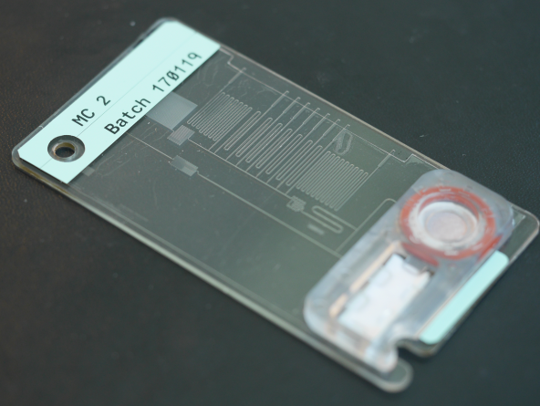
Our Technology
Sensoreal’s core technology is a microfluidics platform that performs a variety of fluid handling steps in a completely automatic fashion, without the need for pumps or valves and without any user input.
At the core of our technology lies the concept of capillarics. We have developed a series of novel microfluidic, capillary-driven valves and pumps. We use these modular elements to make customizable liquid handling cartridges, in which all fluid flow operations are self-powered by capillary effects.
The technology is superior to conventional point of care devices in many ways:
Quantification of a low abundance proteins.
Multiplexed analysis of the sample with a wide dynamic range (i.e. from µg/mL to pg/mL).
Automated fluid handling, resulting in minimal hands-on time required.
Affordable large scale manufacturing due to the simplicity of design.
Our Platform Scope
Sensoreal technology is a platform with multiple applications. Our liquid handling platform is incredibly flexible and suited for variety of applications:
Point-of-Care Testing at Clinics and Specialist Doctors
Emergency Rooms & Stat Labs
Contract Research Services
Home-use and Self-testing
A Technology From Outer Space
In May 2019 Canada became the first country to perform a rapid blood test at the International Space Station using a microfluidic device powered by Sensoreal’s technology. We demonstrated the incredible capacity of our technology to help astronauts conduct bioassays in a zero gravity environment and since then we have continuously innovated in order to help people here on Earth. In a nutshell, what differentiates Sensoreal’s technology from its competitors is the fact that our microfluidic chips can precisely measure disease biomarkers absolutely anywhere, from the ISS to a rural clinic to a busy emergency room.
Our technology allows us to:
Miniaturize and automate laboratory procedures on a chip,
Operate with only a finger prick blood sample,
Perform quantitative diagnostic tests in minutes.
The Bio-Analyzer on the International Space Station. The Canadian technology was turned on on-orbit for the first time by Canadian Space Agency astronaut David Saint-Jacques in May 2019.
image credit: CSA/NASA



